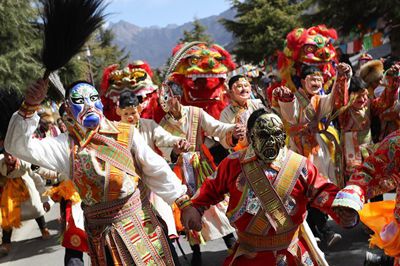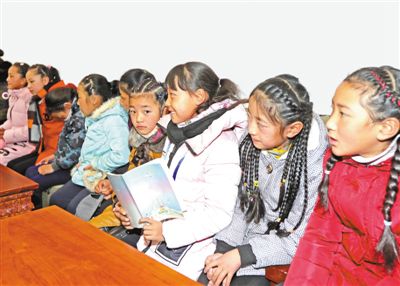|
15. Does Tibet Autonomous region have the right to formulate and implement local regulations?
A: Established in September 1965, Tibet Autonomous Region is one of the five ethnic autonomous regions in China. According to China's Constitution and the Law of the People's Republic of China on Regional Ethnic Autonomy, Tibet Autonomous Region enjoys extensive autonomous rights, involving politics, economy, culture and social life. Tibet rights include: --Formulating autonomy regulations and specific regulations in accordance with local political, economic and cultural characteristics. There regulations become effective upon approval from the National People's Congress. --Enforcing state laws and policies in accordance with the actual situation in the locality. If any decisions, decrees and instructions emanating from the higher-level state departments do not suit the autonomous localities, the self-government organs may alter or simply not implement them, provided that they have the approval of a higher-level government department. --Adopting flexible policies and measures to speed up the economic and cultural development of the autonomous region without violating the Constitution and state laws. --Employing the spoken and written languages in common use in the locality in performing their duties. --Adopting various measures to train ethnic minority cadres, scientist and technicians according to the need of socialist construction. --Organizing local public security forces for the maintenance of public order in accordance with the military system of the state and practical local needs with the approval of the State Council. --Administrating local finance and planning local economic development. --Administrating local education. Science, culture, public health, and sport, protecting and sifting through the cultural heritage, and developing local culture. Since March 1979, the People's Congress of Tibet Autonomous Region and its standing committee have adopted and issued over 120 local rules, specific regulations and decisions with legal effect, covering the fields of political power construction, economic and social development, marriage, education, language, judiciary, and wild life and natural resource protection. All these rules and regulations have Tibetan characteristics. |
- Home
- News |Tibet |Exclusive |China |World |Other Tibetan-Inhabited Area |Tibet through the Eyes of Foreigners |Related News
- Documents |White Papers |Others
- Photo |Politics |Economy & Society |Culture & Religion |Human & Nature |Beautiful Tibet |Other Tibetan-Inhabited Area |Exchanges |Related
- Video |News |Documentary |Micro-Video |Entertainment
- Art
- Tourism
- In Focus
- About Tibet






